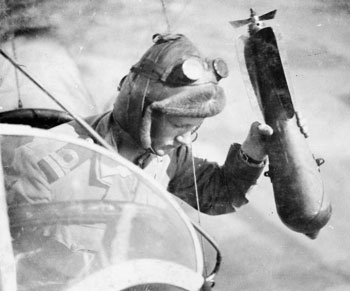 As the Simms execs sat around their board room table in Bozeman discussing the bombshell they were about to drop on their specialty fly shop ‘partners’ a few weeks ago – that Simm’s would soon be competing with fly shops in direct sales – you have to wonder what sort of fallout they expected.
As the Simms execs sat around their board room table in Bozeman discussing the bombshell they were about to drop on their specialty fly shop ‘partners’ a few weeks ago – that Simm’s would soon be competing with fly shops in direct sales – you have to wonder what sort of fallout they expected.
Even with Angling Trade serving up a few easy pitches right over the plate in their interview with Simms’ KC Walsh back on the 21st, Walsh was by no means able to hit a home run as he attempted to paper over the now forever and unquestionably ‘redefined’ relationship Simms has with its specialty dealers.
Given observation of Simms (from Bozeman) for a few years, our guess is that they probably expected a flurry of sniping that would fairly quickly dribble from the attention-challenged mind of the consumer.
On the other hand, independent fly shop owners and operators, many with their backs already pressed against an unyielding and prickly economic wall, likely won’t be so quick to forget.
The most interesting piece I’ve read since Simms fired this latest shot across the bow of fly shops has been this one from Jerry Lappier of the Trout Shop in Craig – Have You Been to a Good Fly Shop Lately?
From his article (originally posted in the shop’s newsletter)…
Fly shops earn your business. You can count on independent fly shops to provide you with honest and accurate fishing reports, quality products and unique services. It’s their unwritten responsibility to the fly fishing industry. Promoting fly fishing is not something fly shops work towards, it’s what they do and why they exist. Professionals that operate fly shops are driven by their passion for fly fishing and innately pass their love for the sport onto customers in the form of local advice and instruction. Seeking a high quality of life is at least equal to the desire to make money. Giving back is a huge part of the mantra.
Customers do their part to keep the engine running. They reward fly shops for their dedicated work by purchasing goods and services from them. Advice is free, but somehow the lights need to stay on. Many fly fishing customers go well out of there way to throw support behind the efforts of their favorite shops. It’s one of the many great things about the sport. When given the option, we’re happy to say that most fly fishing customers prefer to shop at fly shops.
Fly shops do earn your business, at least the good and great ones do. And despite Simms’ most recent change in policy (in their defense, they’re certainly not the only ones direct selling), the truly great shops will continue to earn your business and for our part, we’re going to keep plugging for the great regional shops with all our might.
For those shops who can’t get it together to provide really, really great service – the Goliaths out there (Simms et al) have just pounded another nail into your coffin.
Lappier’s article goes on to review the history of their local shop in Craig interwoven with a very well articulated history of the industry as a whole over the past 15 or so years, including an unabashed critique of AFFTA and her manufacturer dominated board. Just read it.
He goes to remind the fly fishing consumer, that’s you and me clutching our hard-earned dollars in sweaty palms, that we do have some influence in how this story pans out.
According to AFFTA’s own marketing survey, specialty stores are the most likely place to introduce new participants to the industry. Fly shops can’t bring more people into the industry if they are out of business.
Consumers need to understand that their choice of retail outlets makes a difference; that they can help. Products and their prices are the same regardless of where you buy them. From a manufacturer’s perspective, it doesn’t matter where consumers purchase their products as long as they get bought. If you’re a fisherman, it definitely does matter where you purchase your products (author’s emphasis). Preserving the fly fishing tradition in great part depends upon consumers recognizing how small and fragile the fly fishing industry is. Doing your part by buying from local businesses that live on the sport and provide superior service will save the industry. AFFTA can’t do it alone even if they try.
The independent, specialty fly shop’s story is far from finished at this point. As the old story goes, Goliath looked unbeatable, but a kid with a rock turned the tide.
Image via Imperial War Museum / Wikipedia

